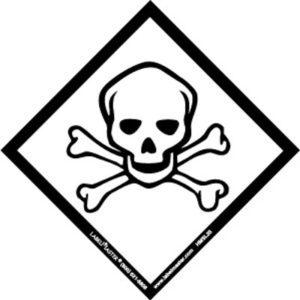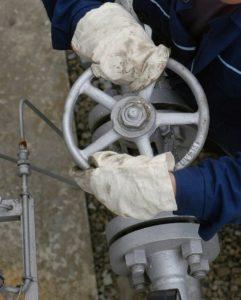
A tragic series of mishaps at an asphalt refining company in Douglas County, Georgia this week is a reminder of how quickly injuries can happen when workers are taken off-guard. It also prompts us to re-visit safety protocol and prevention of injury from hydrogen sulfide gas.
The incident at the Asphalt Refining and Technology Company happened when several co-workers went to the aid of a man who went into cardiac arrest while working on a platform 20-feet off the ground. In the apparent confusion, a vent opened, releasing hydrogen sulfide gas. One of the workers fell off of the platform after the gas sprayed in his face. He later died from his injuries. The heart attack victim and other co-workers were sent to the hospital.
While the victim apparently did not die from exposure to the gas, the accidental release of the poisonous substance may have added to the panic that ensued after the co-worker’s unfortunate heart attack.
Hydrogen sulfide is a colorless, flammable, extremely hazardous gas with a “rotten egg” smell. It is found naturally in closed spaces where bacteria and decaying material lay- in sewers, for instance. It is also a bi-product of processes including pulp and paper and hot asphalt production–such as in the case of this company.
The Occupational Safety and Health Administration (OSHA) reports several incidents of deaths due to hydrogen sulfide gas exposure:
- A 49-year old sanitation worker died when rescuing a co-worker from an underground sewer vault when he was overcome with hydrogen sulfide gas.
- Workers who entered a 27-foot deep pit in a marshy area died after being overcome by hydrogen sulfide.
- Workers died clearing debris from an underground sewer pipe. Both were overwhelmed by hydrogen sulfide gas. They were 19 and 25 years old.
- Two workers died at an oil field water injection plant while replacing a water transfer pump. Hydrogen sulfide was released when a clamp was removed.
- A 25-year old waste hauling service worker died after collapsing in an underground manure waste pit. The pit had a square access opening fitted with a removable stainless steel cover. The pit was not equipped with any type of ventilation system or gas monitoring equipment.
- Four workers died in an underground lift station that collected leachate from a landfill. One worker entered to replace a sump pump and was overcome by hydrogen sulfide gas. A second, then third, and finally fourth worker entered to attempt rescue. All were overcome and died in the permit-required confined space.

(Source: OSHA)
Know your Environment
No one ever expects to die by performing a job for pay- no matter what the cause. It is critically important to be educated about the risks relating to hydrogen sulfide gas, and any other hazard. It pays to ‘blow the whistle’ when the risks appear to be too high for safe work conditions.
Ramos & Law has been advocating for injured workers in Georgia for 10 years. If you have been injured on-the-job, or have a question about a workers’ compensation claim, call us for a free consultation.

